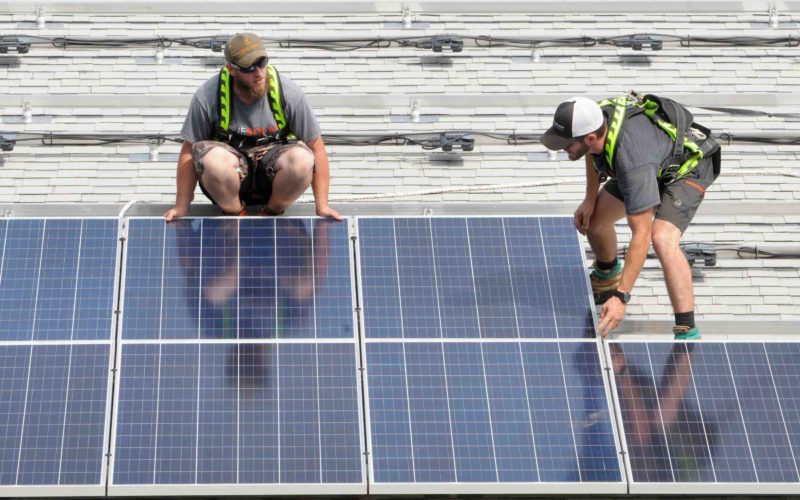Solar power may lead to tax savings
AMANDA BANCROFT
Making Ripples
April 15 is tax day. If you invested in solar panels or solar power systems, wind power or geothermal for your home in 2018, or plan to buy them in 2019, don’t forget to look into the 30 percent federal tax credit. No, it did not “go away.” Spread the word! Many people mistakenly think this and are missing out. This is not tax advice but rather a public service announcement about the existence of the credit. Go directly to the source (such as the Internal Revenue Service website) to find out whether your individual situation qualifies.
This credit offsets any federal tax liability if you end up owing taxes. You still pay any Social Security tax and Medicare tax; this applies only to the federal tax you paid out of your paycheck or at tax time.
How much longer will this credit be available? According to the U.S. Department of Energy, there will be a gradual stepdown of credit amounts each year, so act quickly if you think you will benefit. Your system must be installed on or before Dec. 31, 2021. The DOE offers a lot of information for solar, wind and geothermal installations. The following timeline for solar installations can be found on their website at www.energy.gov/savings/residential-renewable-energy-tax-credit
30 percent for systems placed in service by Dec. 31, 2019
26 percent for systems placed in service after Dec. 31, 2019, and before Jan. 1, 2021
22 percent for systems placed in service after Dec. 31, 2020, and before Jan. 1, 2022
Let’s talk specifically about solar installations, or the solar investment tax credit (ITC). It doesn’t matter if you take the standard deduction or itemize, whether you hire a professional or file taxes online yourself, you can still apply this credit. Even if you are self-employed, apply this credit to the federal portion and just pay the “SE tax” or self-employment tax as usual.
The solar ITC doesn’t apply to leased solar installations or rental property, even if you own that property. This is for residential homes (your official residence but not necessarily your primary one). Businesses may qualify for a solar ITC too, but it works differently, so look into the details. You must own the panels and the system you installed. It’s OK if you had a company install it for you, and it still counts if you installed it yourself. Keep all the receipts to prove you did buy solar during the past year. The credit counts for any completed installation during the tax year, but the system doesn’t necessarily have to be up and running yet.
Do you have to make a certain amount of income for this to apply? No, but people who owe more federal taxes will benefit the most from the credit. Budget accordingly and don’t rely on the credit! You may never see it.
Calculate the amount of your solar ITC based on the cost of your installation after you received any rebates, such as from your utility company. It only applies to 30 percent of what you paid, so if you got a rebate, you didn’t pay the sticker price. If you don’t owe enough federal taxes this year, the credit rolls over to next year, for five years following your solar purchase.
In summary, if you bought solar in 2018, and within five years end up owing federal taxes equal to or less than 30 percent of what you paid for solar, you won’t have to pay those federal taxes. So it “feels like” you got a discount on solar of 30 percent off! Pretty great. Unless you don’t owe even close to that amount in federal taxes, then you mostly pay the full price for solar. This is not what’s called a “refundable” credit, so you won’t get a check in the mail for the remainder.
According to the IRS, you’ll need to fill out Form 5695 when filing. An online tax filing site will help you with this. You may also download the form at: www.irs.gov/pub/irs-pdf/f5695.pdf Form 569
Amanda Bancroft is a writer, artist, and naturalist living in an off-grid tiny house on Kessler Mountain. She and her husband Ryan blog about their adventures and offer tips to those wanting to make a difference at www.RipplesBlog.org.










